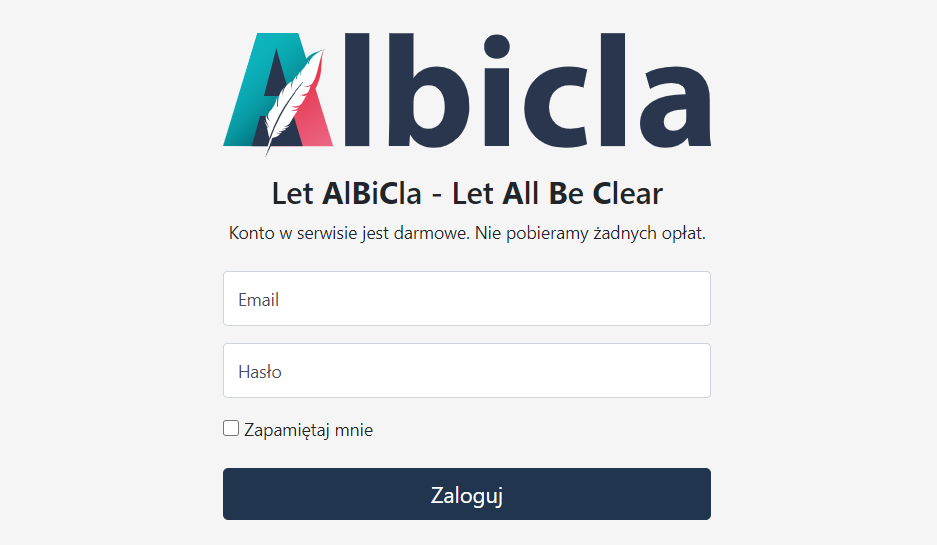Hours after its launch, Albicla, a new Polish social media site operated by a conservative newspaper that promises to “stop censorship”, ran into technical issues and faced claims that it had copied part of its terms and conditions from Facebook.
Commentators also noted that, despite the new service’s claims of protecting free speech, its user agreement shows that it will censor content it deems to constitute “incorrect use” of the site or “harmful in relation to others”.
Już od 17:00❗️
Start nowego polskiego portalu społecznościowego https://t.co/8TCgK88tqu #AlbiclaSTOP cenzurze w sieci
Zapraszamy #rt pic.twitter.com/xyIdlVuYUG
— Gazeta Polska – w każdą środę (@GPtygodnik) January 20, 2021
Launched on Wednesday evening, the social media site’s name refers to albus aquila, which means “white eagle” in Latin. Its slogan, written in English, is “Let AlBiCla – Let All Be Clear”.
The service is linked to Gazeta Polska, a conservative newspaper supportive of the ruling Law and Justice (PiS) party. The domain is owned by Słowo Niezależne, owner of Niezalezna.pl, a news website associated with the newspaper.
Gazeta Polska came to international attention in 2019 when it distributed “LGBT-free zone” stickers with copies of the newspaper.
The editor of the newspaper giving out 'LGBT-free Zone' stickers says a court ruling ordering distribution to halt is 'the first case of censorship' in post-communist Poland. They will sue retailers who comply with it by withdrawing the newspaper from sale https://t.co/z7C1xm3lOy
— Notes from Poland 🇵🇱 (@notesfrompoland) July 26, 2019
The newspaper has presented its new service as “our answer to censorship on the web”. Its editor, Tomasz Sakiewicz, said that “the dangerous phenomena of monopolisation and censorship have been on the rise for several years, but have now reached their apogee”.
It is therefore “a duty” to oppose it by “creating our own electronic media,” he added, cited by Wirtualna Polska. Conservatives in Poland have long claimed to be unfairly treated by social media services. Such complaints have been amplified by recent action against Donald Trump and his supporters.
Yet despite Albicla’s claim to oppose censorship, the site’s rules allow for content to be removed and accounts blocked for undefined “incorrect use” or “harmful action in relation to others”. Users, who are supposed to provide real names and surnames, can also be reported to law enforcement authorities for such actions.
Moreover, despite the new service setting itself in opposition to US social media giants, it appeared that part of its terms and conditions were copied from Facebook. Users noted that the PDF file of the site’s rules included hyperlinks to pages on Facebook, reports Radio Zet.
Albicla bez cenzury 🙂 pic.twitter.com/15Z1CwPApB
— kataryna (@katarynaaa) January 20, 2021
Three hours after its launch, the service announced that it had already hit 10,000 users. Soon, however, it ran into technical difficulties. Some users reportedly struggled to register, with confirmation emails taking over ten hours to arrive.
Questions have already been raised over how well protected the site is. Initially, users were allowed to choose passwords of only one letter/sign (which was later raised to eight) and there is no two-step verification.
A website specialising in internet security, Zaufania Trzecia Strona, identified a number of vulnerabilities in the website’s code (which it says have now been fixed).
Macie kontakt do kogoś z @AIbicla? Przekażcie im, że mają w skrzynce "kontakt" linka umożliwiającego pobranie z ich strony IP, loginu i hasła bazy danych serwisu stojącej na publicznym adresie IP. Pisaliśmy już jakiś czas temu ale nie odpisują, a sprawa jest jakby pilna…
— ZaufanaTrzeciaStrona (@Zaufana3Strona) January 20, 2021
Among the first batch of users of Albicla was culture minister Piotr Gliński and deputy justice minister Sebastian Kaleta, who wrote in his first post on the service that he “wishes the founders luck in developing a space for interesting discussions”.
Poland’s national-conservative government has long been critical of social media giants for their alleged censorship of Polish right-wing users. Last week, the prime minister, Mareusz Morawiecki, compared internet giants to “totalitarian and authoritarian regimes” and promised that his government would take action against them.
The justice ministry has proposed a new law that would ban social media firms from removing content or blocking the accounts of users in Poland for any actions that do not contravene Polish law. Fines of up to 50 million zloty (€11 million) could be issued by a “Free Speech Council” chosen by parliament.
The plan differs from the one presented by the justice ministry last month, which envisioned rulings being made by a court rather than a council chosen by parliament.
This week the PM promised to fight "totalitarian censorship" by social media firms https://t.co/t8bPw5FyiO
— Notes from Poland 🇵🇱 (@notesfrompoland) January 15, 2021
Main image credit: Albicla.com

Maria Wilczek is deputy editor of Notes from Poland. She is a regular writer for The Times, The Economist and Al Jazeera English, and has also featured in Foreign Policy, Politico Europe, The Spectator and Gazeta Wyborcza.




















